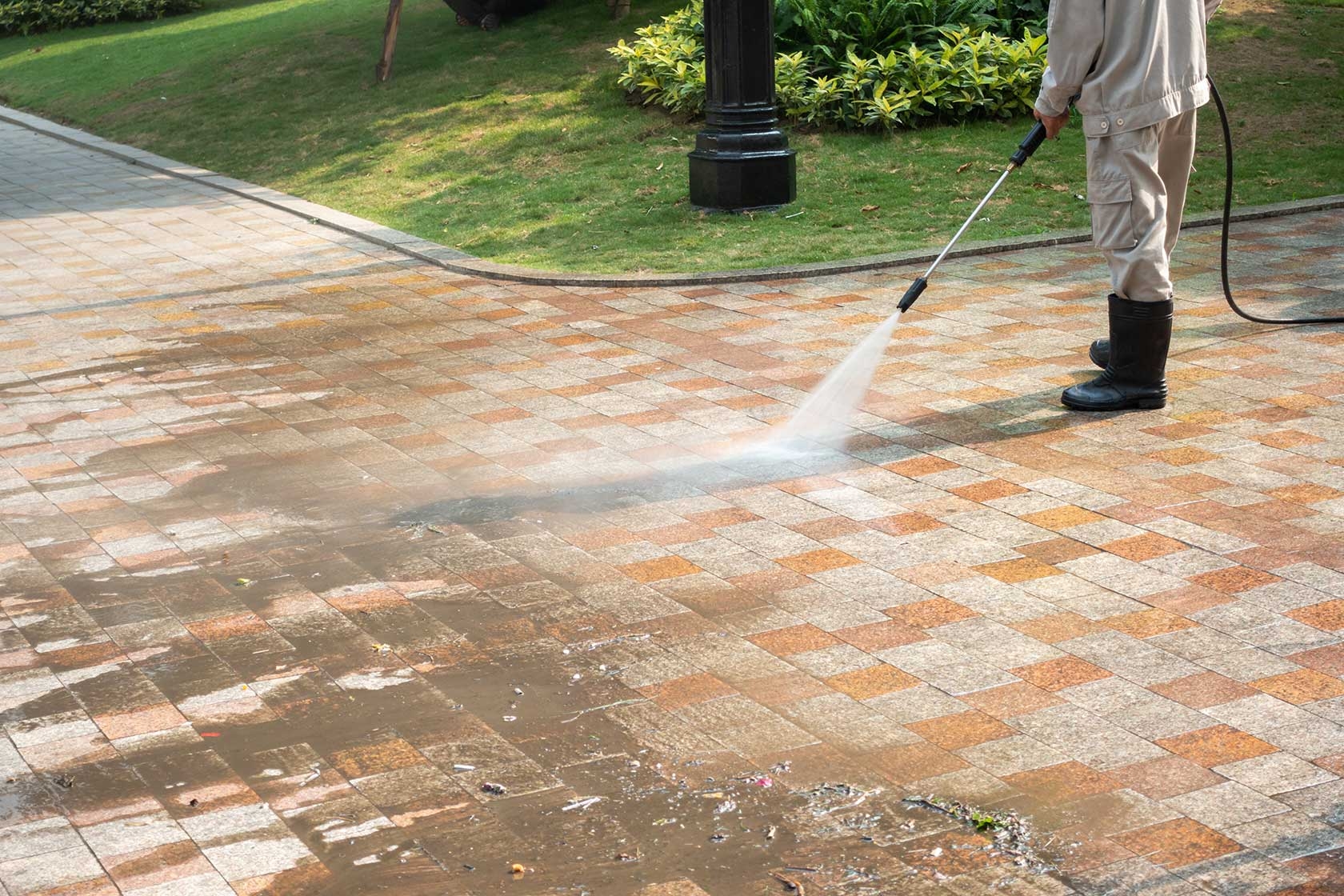What is the Best Thing for Driveway Cleaning?

A clean driveway enhances the overall appearance of your property, improves safety, and extends the lifespan of the surface. However, choosing the best method for driveway cleaning depends on the type of material and the level of dirt or stains. From pressure washing to natural Driveway Cleaning Solutions in Durham, there are several ways to keep your driveway spotless.
Understanding Driveway Cleaning Techniques
Cleaning a driveway involves removing dirt, stains, moss, oil spills, and algae buildup. The effectiveness of a cleaning method depends on factors such as the type of driveway material, the severity of stains, and the availability of cleaning tools. Here are the best ways to maintain a clean and well-kept driveway.
1. Pressure Washing for Deep Cleaning
Pressure Washing is one of the most effective methods for driveway cleaning. It removes tough stains, moss, algae, and grime by using high-pressure water. This method works exceptionally well on concrete, brick, and stone driveways.
How to Use a Pressure Washer for Driveway Cleaning:
-
Prepare the area: Remove vehicles, furniture, and debris.
-
Pre-treat stains: Apply a degreaser or cleaning solution to stubborn oil and grease stains.
-
Adjust pressure settings: Use an appropriate PSI level to avoid surface damage.
-
Start washing: Move the pressure washer in a sweeping motion for an even clean.
-
Rinse thoroughly: Ensure all residue is washed away.
2. Using Eco-Friendly Cleaning Solutions
For those who prefer an environmentally friendly approach, natural cleaning solutions work well in driveway cleaning. They are safe for pets, plants, and surrounding areas.
Best Eco-Friendly Driveway Cleaning Solutions:
-
Baking soda and vinegar: Removes stains and neutralizes odors.
-
Lemon juice and water: Works as a natural degreaser.
-
Hydrogen peroxide: Helps brighten and sanitize the surface.
-
Dish soap and warm water: Suitable for light stains and dirt removal.
To apply, mix the solution, pour it over the affected area, scrub with a stiff brush, and rinse with water.
3. Chemical Cleaners for Stubborn Stains
Sometimes, natural solutions or water pressure alone may not be enough. In such cases, commercial chemical cleaners can break down tough stains.
Types of Chemical Cleaners:
-
Degreasers: Effective for oil and grease stains.
-
Algae and moss removers: Prevents regrowth on driveways.
-
Rust removers: Targets rust stains from metal objects.
When using chemical cleaners, always follow manufacturer instructions, wear protective gear, and avoid excessive runoff into gardens or drains.
4. Manual Scrubbing for Delicate Surfaces
For driveways made of decorative pavers or asphalt, pressure washing may cause damage. Instead, manual scrubbing using a stiff brush and a mild detergent solution is a safer option.
Steps for Manual Scrubbing:
-
Wet the driveway with water.
-
Apply a mild detergent or natural cleaning solution.
-
Scrub the surface using a hard-bristle brush.
-
Rinse thoroughly with a garden hose.
-
Repeat for stubborn stains.
5. Sealing for Long-Term Protection
Sealing a driveway after cleaning helps to maintain its condition and prevent future stains. Sealants protect the surface from moisture, oil spills, and UV rays.
How to Seal a Driveway:
-
Clean the driveway thoroughly.
-
Allow it to dry completely.
-
Apply a high-quality sealant using a roller or sprayer.
-
Let it cure for the recommended time before use.
Sealing is particularly beneficial for concrete and asphalt driveways, as it enhances durability and appearance.
6. Professional Driveway Cleaning Services
For homeowners who want the best results without the hassle, hiring professionals like Driveways Durham is an excellent choice. Professional cleaning services use specialized equipment and cleaning solutions to restore driveways to their original state.
Benefits of Hiring Professionals:
-
Expertise in handling different driveway materials
-
Use of industrial-grade cleaning agents and equipment
-
Time-saving and hassle-free process
-
Prevention of damage caused by incorrect cleaning methods
Conclusion
Choosing the best driveway cleaning method depends on the material, stain type, and desired level of cleanliness. Pressure washing, eco-friendly solutions, and chemical cleaners each have their advantages. Sealing the driveway offers long-term protection, while professional services ensure deep cleaning without damage. With proper care and maintenance, your driveway can remain in pristine condition for years.
Frequently Asked Questions (FAQs)
How often should I clean my driveway?
It depends on the level of dirt and weather conditions. Generally, a deep clean every 6 to 12 months is recommended, with regular spot cleaning as needed.
Can I use bleach to clean my driveway?
Yes, but it should be diluted with water to avoid damage. Bleach is effective for mold, mildew, and algae removal.
Is pressure washing safe for all driveways?
No, some surfaces like asphalt or decorative pavers may get damaged with high pressure. Always test a small area first.
What is the best way to remove oil stains from a driveway?
Using a degreaser, baking soda, or dish soap with warm water works well. Scrubbing and rinsing the area thoroughly helps remove oil stains.
How can I prevent my driveway from getting dirty quickly?
Regular sweeping, prompt removal of spills, and sealing the surface can help maintain cleanliness for a longer period.
- Questions and Answers
- Opinion
- Motivational and Inspiring Story
- Technology
- Live and Let live
- Focus
- Geopolitics
- Military-Arms/Equipment
- Sicurezza
- Economy
- Beasts of Nations
- Machine Tools-The “Mother Industry”
- Art
- Causes
- Crafts
- Dance
- Drinks
- Film/Movie
- Fitness
- Food
- Giochi
- Gardening
- Health
- Home
- Literature
- Music
- Networking
- Altre informazioni
- Party
- Religion
- Shopping
- Sports
- Theater
- Health and Wellness
- News
- Culture

